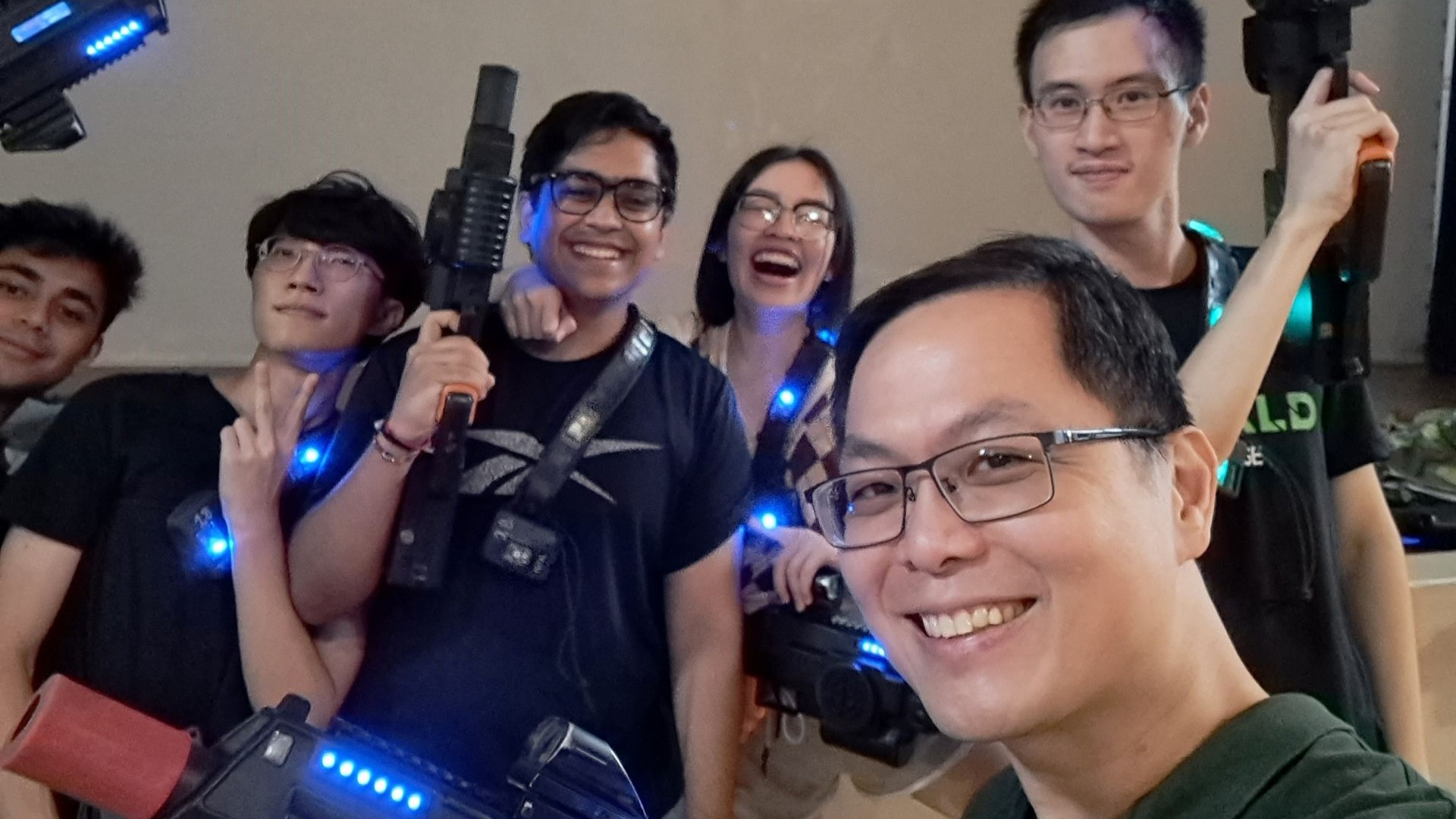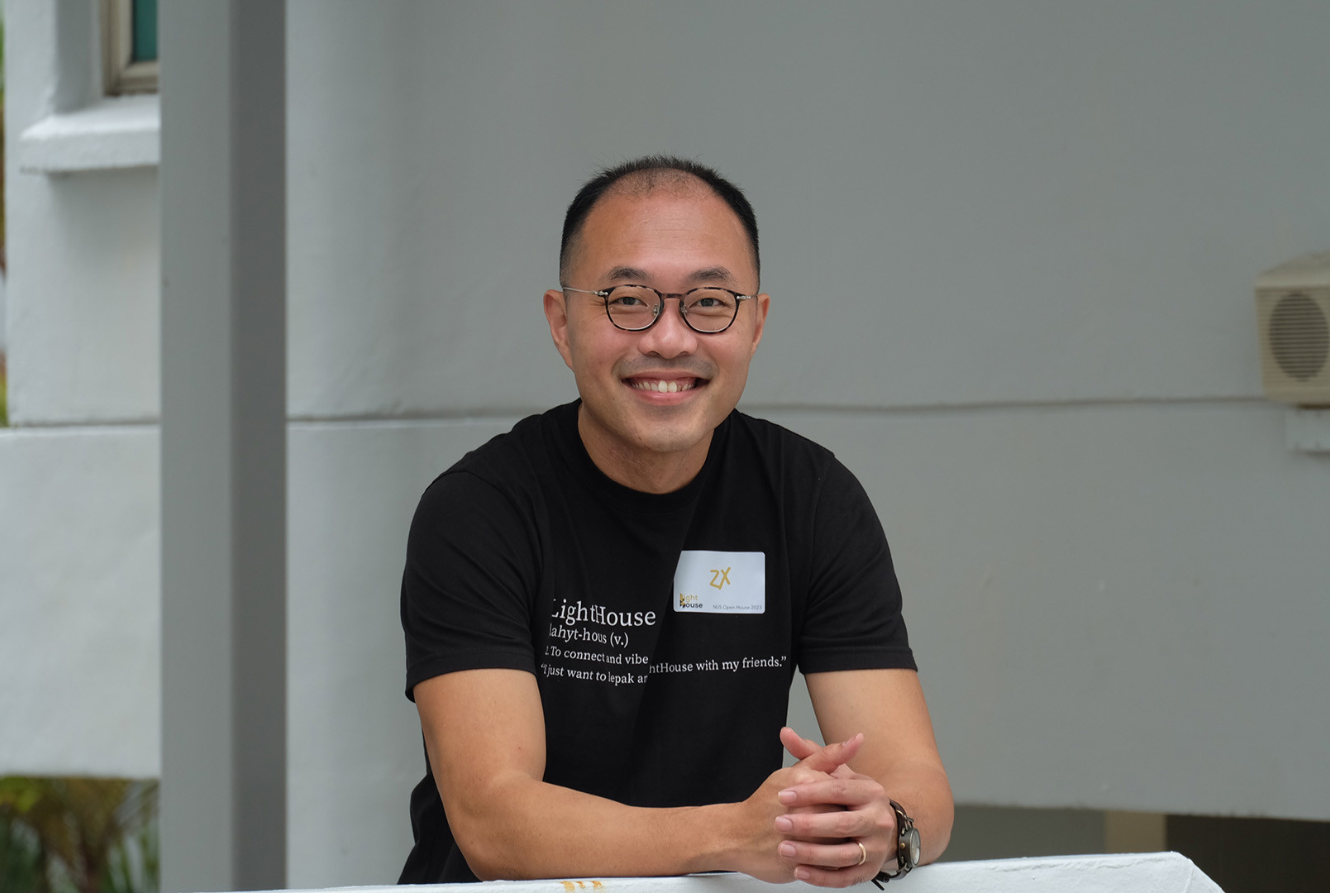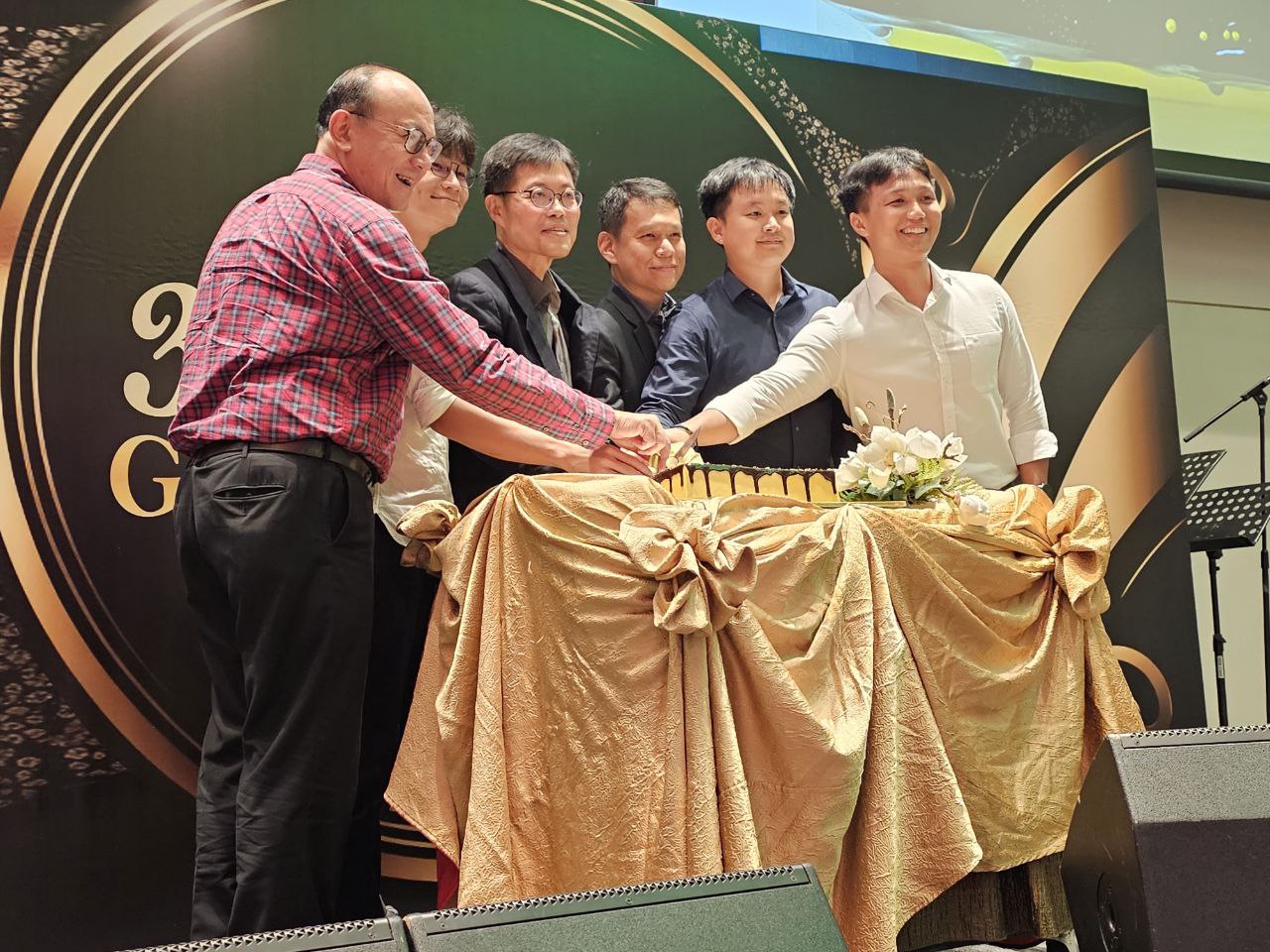“Just because someone stumbles and loses their way, doesn’t mean they’re lost forever. Sometimes, we all need a little help,” it says on PGPR’s website.
The quote sums up how he sees his role at the residence, which houses 1,300 students. “The biggest reward is being able to make a positive impact on their lives,” he noted. “I have journeyed a lot further in life than they have, and can advise them on mistakes to avoid so they do not have to make the same ones I did.”
The Deputy Director of the University Health Centre is no stranger to campus living, having stayed at NUS with his wife and two children for over 10 years. He joined NUS in 2012, after spending 10 years in private practice as a family physician.
In July 2022, he became the Master of the newly-revamped PGPR, after prior positions as Resident Advisor of Ridge View Residences and Resident Fellow at Eusoff Hall.
The new residence is carved out from the old PGPR, set up in 2002 in a valley near Kent Ridge MRT. Today, it is a self-contained student estate, with condominium-like housing and amenities such as a gym, music rooms, game room, convenience store, and newer facilities like an aromatherapy room and a community garden.
“We aspire to be a hostel that brings out the best in residents,” said Dr Lee, adding that the students can look forward to a multicultural community with residents hailing from 70 countries as well as leadership opportunities and thematic programmes in sports, wellness, community engagement or outdoor adventures.
“We provide the place; we provide the opportunities. But you call the shots,” he quipped.
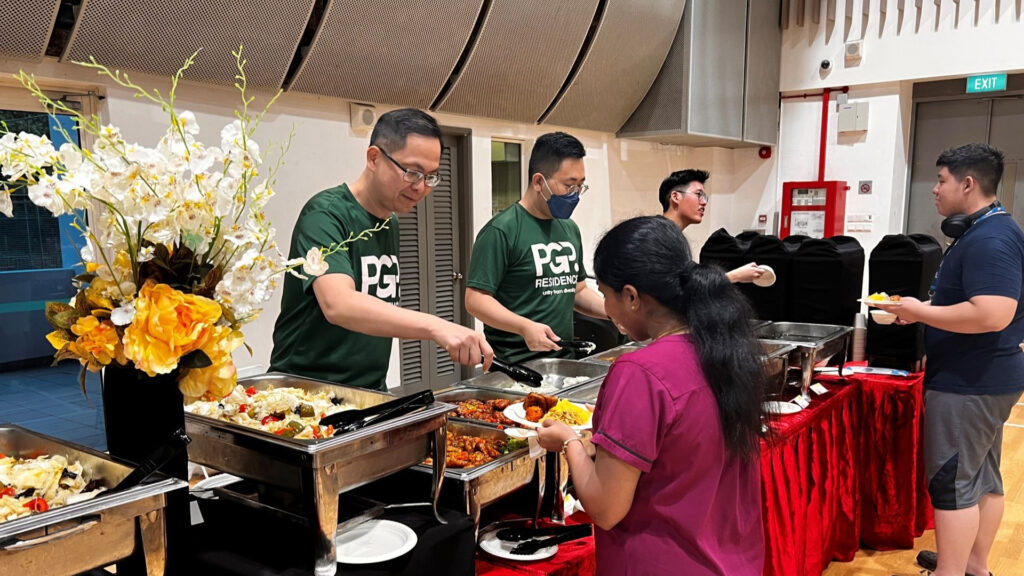
PGPR promises a streamlined campus living experience for its residents, allowing them to decide for themselves when and what opportunities for self-growth they would like to take up.
Find out how Dr Lee is making PGPR a top-tier campus residence for students to learn, live and find leisure at their own pace.
This interview has been edited for length and clarity.
Q: What is a typical day like for you?
A typical day starts at 7am with an iced black coffee. I then walk 1.7 km, up and down a hilly terrain, to work at the University Health Centre. If the day permits, I will also walk home after. That gives me a 3.4 km walk five days a week. With that, I get my cardio done.
During office hours, I settle my duties at the Health Centre. At night and on weekends, I spend most of my time on PGPR work and studying for my Executive Master of Business Administration.
I also have a small gym setup at home with my own free weights, bench, pull-up bar and everything, so I spend quite a fair bit of time there. My wife and I also take many walks around the campus. It is pretty nice with a lot of greenery and local flora and fauna. About three weeks ago, I even spotted a buffy fish owl!
If I see students, I try to stop and talk to them. I ask them how they are, what course they are doing, and how they are getting along. I also ask them, “What is PGPR lacking? How can we serve you better?”
Q: Tell us more about PGPR’s motto “Unity from Diversity”.
My wife came up with it. We have students hailing from almost 70 different nationalities, with international students making up about 70 per cent of the PGPR population.
One of the things we really need to do is bring them together as one entity, and to forge unity from diversity. There is so much we can learn from one another. Where I am weaker and you are stronger, and vice versa, we can become stronger together.
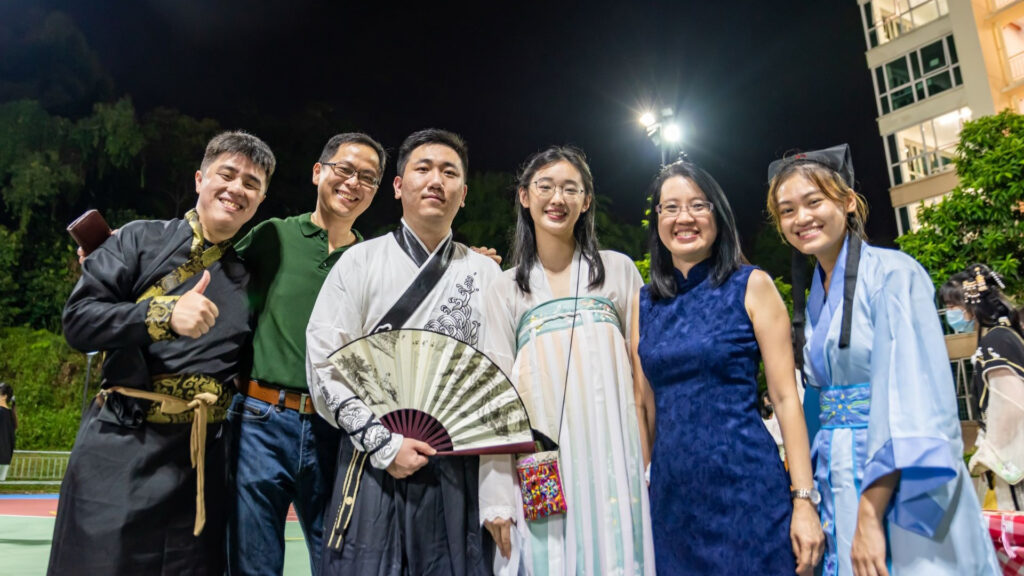
We want to create a safe space for students to reside, which includes being warm, welcoming, and inclusive. We run a whole gamut of events, like celebrations of the Mid-Autumn Festival, Songkran (Thai Water Festival) and Deepavali.
Q: What else makes PGPR special?
PGPR is for students who want a place to stay on campus, where they can meet people and participate in engaging activities, but do not want to feel compelled to do so. At PGPR, you can do so on your own terms, and customise your own campus experience.
We are also one of the few hostels that have “married apartments”. Some of our students – like those taking their PhDs – are married and have kids, so one of the first things we did was make a family-friendly indoor playground, called Georgie’s Wonderland, to accommodate them.
We also pay particular attention to mental health, with a whole sub-committee devoted to student wellness. We created the Aromatherapy Room: The Soul Library to provide students with a quiet space surrounded by books, calming scents, and good scenery, to take a breather from the hustle and bustle of daily life.
We also have a huge writable wall along a pathway where students are free to write encouraging messages to one another, a testament to the strength of the community that has sprouted here.
Q: What’s buzzing at PGPR?
We have some new initiatives in the works—we are setting up a karaoke room for our students to use free-of-charge.
We have also worked with the House Rabbit Society to set up a room where we take care of and foster abandoned rabbits. There, students can enjoy two things. First, they get to work with rabbits. I think animal therapy is something students – or at least those who like animals – will enjoy. Second, those involved will be given the chance to volunteer and look beyond themselves.
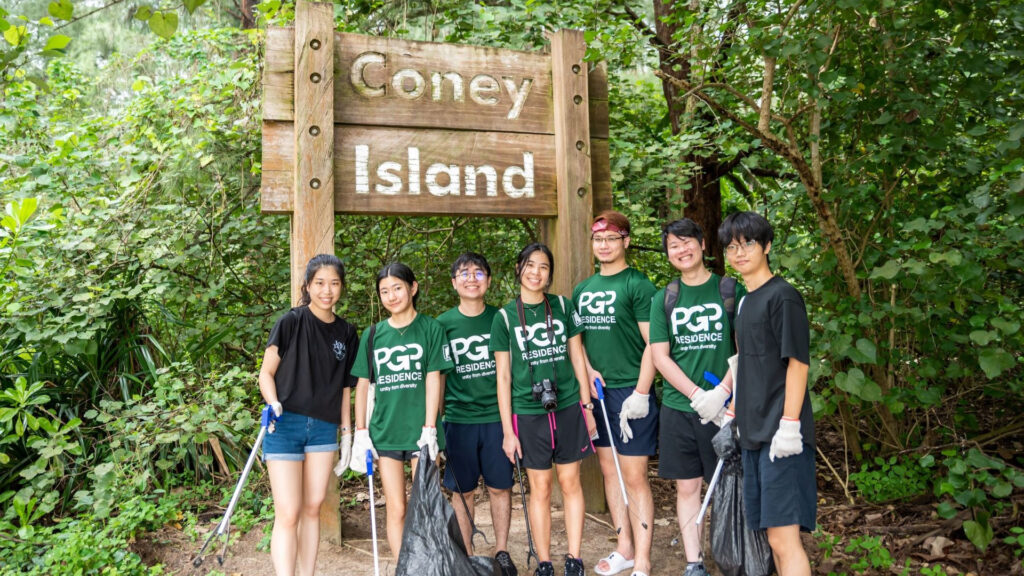
Another example of an activity with dual objectives is “Kayak and Clean”, where we not only take our students out to kayak but also to clean up Marina Barrage. We also organise walks and clean-ups at Coney Island and East Coast Park at least once or twice a semester.
Q: What are the most challenging and rewarding aspects of being Master?
I think they are both the same – managing students with care and sensitivity. It takes a lot of energy and emotional investment when handling students who are struggling with difficult periods in their lives, but it is very rewarding when I can make a positive impact on their lives.
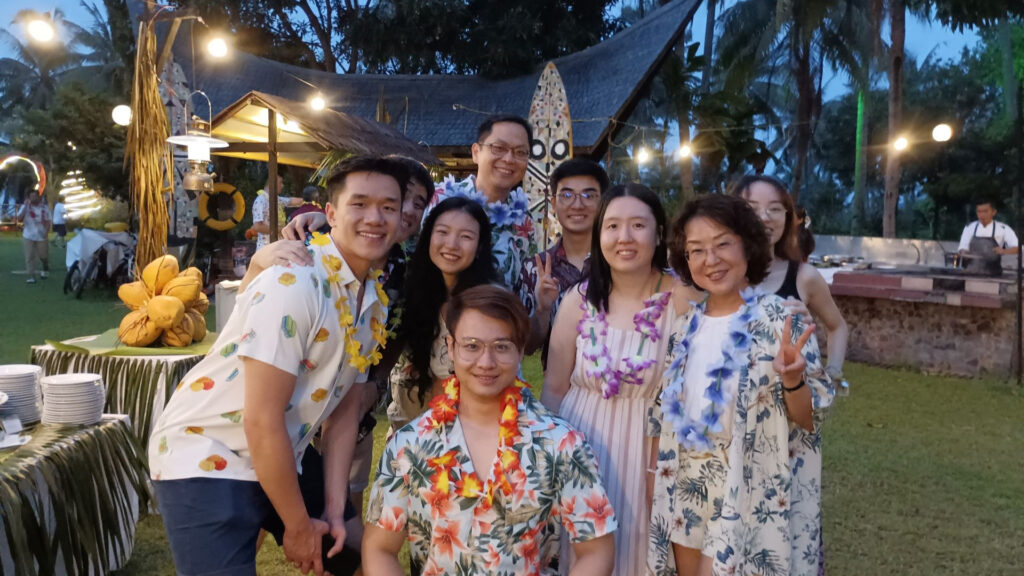
I am also thankful for my team of Resident Fellows, office staff, Resident Assistants, office staff and student leaders. It has been a joy to work with them. One of my highlights from the past year is our three-day-two-night leadership retreat to Batam. The students got to know each other better, and we got to know them.
One of the biggest things I have learned is that no matter what position you are in or where you are in life, you can always learn something from somebody.
Share:
Contributor
This story was first published in NUS News on 30 October 2023.


